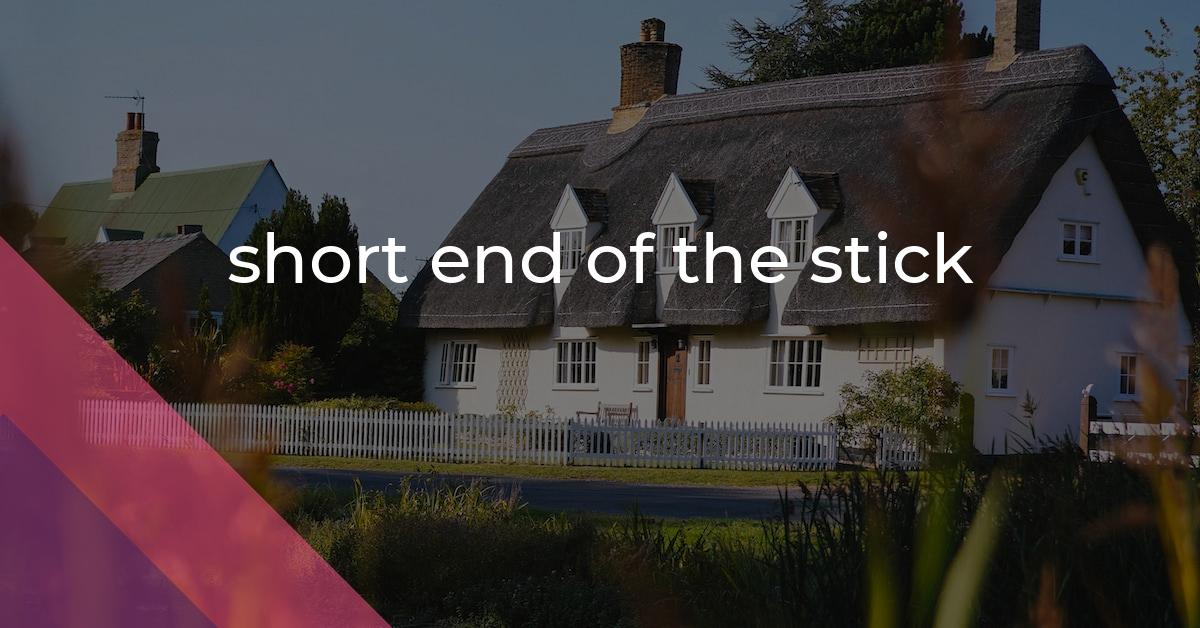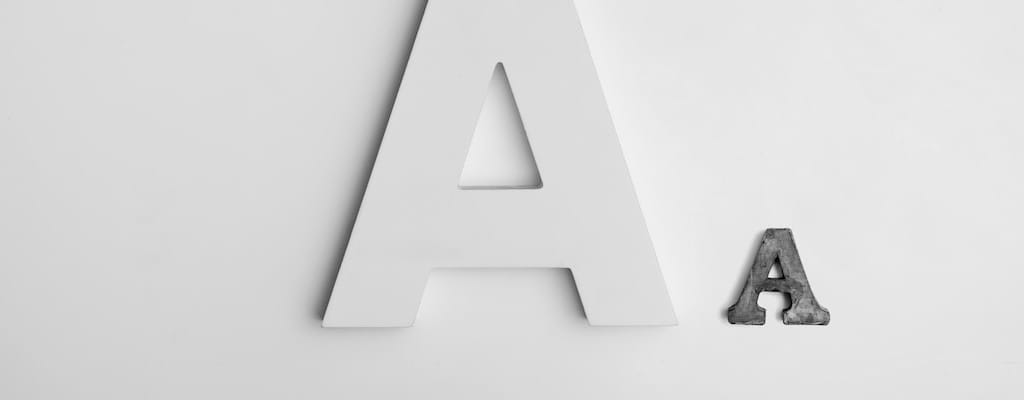short end of the stick: Idiom Meaning and Origin
What does ‘short end of the stick’ mean?
The idiom "short end of the stick" refers to being in a disadvantaged or unfavorable position, often due to unfair treatment or circumstances beyond one's control.

Idiom Explorer
The idiom "wrong side of the tracks" refers to a disadvantaged or dangerous area, typically associated with lower socioeconomic status and higher crime rates.
The idiom "the end of one's rope" means to reach the limits of one's patience, stamina, or resources, with no more options or solutions available.
The idiom "that's your lot" means that something has come to an end or there is nothing more to be expected or offered. It can be used to express that there is no more of something or that there is no further opportunity or possibility.
The idiom "take a turn for the worse" means that a situation or someone's condition has deteriorated or become more negative than before.
The idiom "suck hind tit" means to be in an inferior or disadvantaged position, often compared to others who are more successful or favored.
The idiom "stumbling-block" refers to an obstacle or difficulty that hinders progress or success.
The idiom "stroke of luck" refers to an unexpected event or situation that brings good fortune or success to someone.
The idiom "stick it to" means to take revenge or get back at someone by giving them a difficult or unpleasant experience. It implies confronting and defeating someone in a confrontational or powerful manner.
The idiom *star-crossed* refers to people or things that are destined to have a tragic or ill-fated outcome due to the influence of the stars or larger forces. It suggests a sense of predestined misfortune or bad luck that cannot be avoided.
The idiom "stand from under" means to get out of the way or to move aside in order to avoid being hurt or affected by a situation, often a dangerous or unpredictable one.
FAIL
The idiom "short end of the stick" is a widely used expression in the English language, particularly in the United States. It is often used to describe a situation where someone receives an undesirable or unfair outcome, usually in comparison to others involved in the same situation. The exact origin of this idiom is uncertain, but it is believed to have emerged in the late 19th or early 20th century.
One possible origin of the idiom is linked to the common practice of dividing a log or piece of wood by two people using a saw. In such a scenario, if one person holds the shorter end of the stick, they will have to exert more effort to make the cut, making their position less favorable. This physical representation of being at a disadvantage may have influenced the later figurative use of the idiom.
Another possible origin points to the game of pool or billiards. In this game, the "short end of the stick" refers to the cue ball, which is typically smaller and more difficult to control than the other balls. When a player is left with the cue ball after a shot, they often have a challenging or unfavorable position, putting them at a disadvantage compared to their opponent.
The idiom can also be seen in a broader context of comparative disadvantage. In a business deal, if one party ends up with the "short end of the stick," it means they have received less favorable terms or benefits compared to the other party. Similarly, in personal relationships or competitions, the idiom can reflect a sense of being on the losing side or being disadvantaged in some way.
When faced with an unfair or undesirable situation, it can often feel like you've been handed the short end of the stick. This expression is similar to several other idioms that convey a sense of disadvantage or unfairness. One such idiom is "other end of the ball." This phrase, sometimes used interchangeably with "short end of the stick," emphasizes the feeling of being on the opposite side of a favorable outcome. It suggests that while others may be benefiting or gaining an advantage, you are left with the less desirable end of the situation.
In a similar vein, another related idiom is "draw the short straw." This expression also conveys a sense of receiving an unfavorable outcome or being at a disadvantage. It originated from the practice of drawing straws to determine a favorable or unfavorable task or outcome. Whoever drew the shortest straw would be assigned the less desirable option. In this way, the idiom "draw the short straw" is closely linked to the concept of the short end of the stick, as both expressions highlight the unfairness or disadvantage one may experience in a given situation.
Overall, the idiom "short end of the stick" has become a widely recognized expression conveying a sense of unfairness or disadvantage. Although its precise origin remains uncertain, it is commonly used to describe situations where someone receives an undesirable outcome in comparison to others involved. The metaphorical use of this idiom allows individuals to succinctly express feelings of being at a disadvantage, whether it be in business, sports, or interpersonal relationships. As language continues to evolve, so too may our understanding of idiomatic expressions like this one, leaving room for further exploration and interpretation.
Example usage
1. She always seems to get the short end of the stick when it comes to dividing household chores.
2. The new employee got the short end of the stick and was assigned all the difficult projects.
3. Despite working twice as hard as her colleagues, Maria received the short end of the stick and was passed over for a promotion.
More "Unfortunate" idioms



